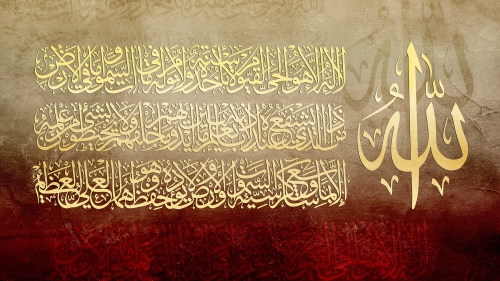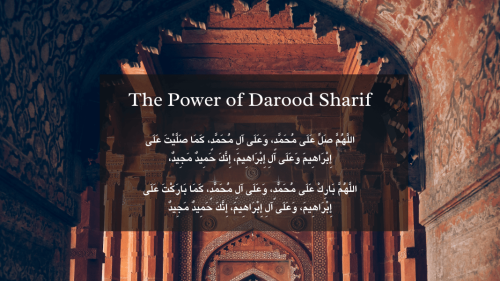Reclaiming Honor: The Pivotal Role of Muslim Women in Family Development

In Islam, the house is an institution. It is a family development centre, which in tandem with other social institutions at once facilitates and supervises the rise of Islamic societies, and by extension, Islamic culture and civilization.
The importance of the house institution-cum-centre is unparalleled. Together with the mosque institution, it occupies the pinnacle of the hierarchy of social establishments. Consequently, women as wives have been appointed as managers or directors (guardians). They have been greatly honored.
The Prophet said this:
“Everyone of you is a guardian and every one of you is responsible (for his wards). A ruler is a guardian and is responsible (for his subjects); a man is a guardian of his family and is responsible (for them); a wife is a guardian of her husband's house and she is responsible (for it), a slave is a guardian of his master's property and is responsible (for that). Beware! All of you are guardians and are responsible (for your wards)” (Sahih al-Bukhari).
However, due to the global assaults of the materialistic worldview and its resultant lifestyles, the Muslim consciousness has been affected and conduct slanted. Instead of seeing the development and administration of the most important institution - i.e. the house - as not only a pivotal enterprise, but also a privilege, Muslims, suddenly, started seeing it as a sign of backwardness and women’s imprisonment.
Instead of perceiving it as a mark of honour, they started perceiving it as a mark of degradation. That resulted in conceiving, planning, building and maintaining houses as centres of materialistic tendencies and corresponding hedonistic behavioural patterns, in lieu of vibrant centres of family and generally social development.
In such houses and under the novel circumstances, Muslim women, without warning, found themselves underutilized and so, underperforming. Staying home as just “housewives” became an undesired anomaly. It became meaningless in a way, which was understandable. If everything changed, from thinking to performing, whereby essentially all things were looked at through the prism of materialism (money-making), it was natural that Muslim women demanded changes with regard to their lives as well.
Muslim women now became more useful outside the house than inside it. Inside they were confined, but outside emancipated. Inside, furthermore, they were inhibited, but outside unleashed. In reality, though, Muslim women were the last link in a chain to be affected, after the concept and architectural phenomenon of the house institution, the family institution itself, and the general idea of social development, had been affected (distorted).
In many ways, Muslim women were hoodwinked. Yet, they were victimized. The culmination of their case was the end product of a great many primary and secondary factors, only a few of which were relevant to them. As per a more scathing assessment, Muslim women had to abandon houses because Muslim men were failing in their own duties outside them.
Rather than supporting and complementing each other, Muslim men and Muslim women began to encroach on each other's roles and even compete with each other. Moreover, instead of talking about equity as well as synchronisation between the two different groups and their respective realms, the Muslim mind was forced to waste itself on perennially dwelling on such nonsensical issues as equality between two inherently different things (men and women) and the status of Muslim women within the frameworks that from the very beginning had been wrongly conceptualized. History attests to the fact that those were of the pathways which led Muslim societies into the abyss of civilizational ruin.
And so, Muslim women were taken out from the warmth and intimacy of the sanctuary of the house institution to the callousness and iciness of the perils of the outside world, with no or very little protection. From the guaranteed honour and the clear as well as safe passages to potential triumphs, they were thrust into the arena of infinite uncertainties where the roads to success are usually littered with unforeseen hazards and even compromises.
With all honesty, women were neither built nor meant for such unfortunate adventures. What Muslim women now achieve outside the house institution pales in comparison with what they used to achieve inside it. By the same token, what they achieve outside is nothing when compared with what they lose by abandoning the family establishment and the prospect of the family development as part of a holistic civilizational advancement. This is one of the fundamental reasons why Muslim societies suffer today, because they dispose of the essentials without which no healthy model of growth is possible.
In consequence, warm and welcoming homes were converted into cold and aloof houses as mere architectural displays; family-cum-social development centres were turned into museum-like hubs of fake prosperity, together with happiness, indexes; dynamic and busy homes became empty and lifeless structural shells; and finally, homes as visionary and self-contained sanctuaries were transmuted into nothing else but transit points on the existential trajectory of matter-veneration.
In other words, multidimensional homes simply became one-dimensional shelters, and the assignments of nurturing individuals and shaping generations were delegated to either incompetent or insincere protagonists. What also suffered in the process was the authentic Islamic residential architecture. In many parts of the Muslim world, it became almost extinct.
If Muslim women underperform, yet fail, as administrators, lawyers, economists, journalists, teachers, businesswomen, etc., that will on no account be the “end of the world.” The consequences will be minimal and the impacts generated thus, before long, smoothed over.
But if Muslim women fail as wives, mothers, mentors and neighbours, as segments of the multilayered post of home managers or home directors, that will spell catastrophic repercussions, such as divorces, broken families, poorly raised and educated children, “cold homes”, and general despondency. Undoubtedly, such failures can be neither smoothed over nor counterbalanced. The trend is as much against the precepts of Islam as the laws of nature.
Hence, its effects are uncharacteristically dire.
It follows that if Muslim women fail, Muslim societies fail. The future is in women’s hands. What the majority of Muslim men do, such as handling machines, running businesses, routine office work and manual labour, in the long run is not as consequential as what women do in relation to the house. They build people, yet future generations, as foremost components of which all sectors of society are constructed.
While women’s tasks are unreplaceable, most of men’s ones are. The capabilities and inputs of men, by and large, can be purchased, obtained from a third party, replicated and even substituted with cost-effective foreign labour.
It cannot be said enough that Muslims ought to desist from making observations and judgments from purely materialistic standpoints. There are other more important things that are at stake. It is indisputable that the development of civilizations involves far more than just the growth of economies (material progress). Developing minds and purifying souls, as part of the processes of cultivating individuals, is more critical. It is more rewarding as well in both worlds.
Bearing in mind all of the above, it is essential to ensure Muslim women receive appropriate education. It is normally stressed that education is Muslim women’s right, which is absolutely correct; however, their twin right is also an education that is in harmony with their Islamic identity and the existential mission of theirs.
For example, education for Muslim women should be such that they will be both instructed and trained to be exemplary custodians (managers or directors) of the delicately demanding house institution above all else. The rest of scholarly undertakings are to be relegated to a subordinate position relative to the former. Educating Muslim women to be mere professionals ahead of everything else in fields that lie beyond their prescribed domains, denotes a form of misguidance and betrayal for them. In the name of learning and enlightenment, they are led astray; in the name of empowerment, they are incapacitated; and in the name of enrichment, they are “robbed.”
As a small digression, against this background should the “unorthodox” system of female education administered by the Taliban in Afghanistan be examined. In the interest of fairness, a more inclusive and more balanced method ought to be adopted. The usual opinion of the Taliban is shaped by the media outlets of their enemies in the institutionalized West.
As one would expect, those narratives are infused with bigotry and are wrong. Other more objective alternatives are needed. Not only in relation to the Taliban, but also the entire Muslim world, it is high time to accept that such news channels and information agencies as CNN, Fox News, BBC, Sky News, etc., have lost all credibility. Taking everything into account, the Taliban may not be as wide of the mark as stereotyped.
Finally, this by no means implies that Muslim women have no role to play outside the purview of the house institution. On the contrary, they have outstanding roles to play, which are part of the comprehensive roles of the house, or are fully independent from them.
Nevertheless, the truth remains that the house institution is the top priority. Other opportunities are subordinated to it. If the functionality of the top priority is not affected in any way. Muslim women are welcome to perform the needed and appropriate external functions, just as the women of the Prophet’s era and the women of the subsequent eras of the truly golden age of Islamic civilization, have done.
But if the functionality of the house and the orb of its activities are affected, Muslim women should then hasten to either reduce or terminate their outer involvements.
Doing so, however, is not a choice, but an obligation, for which Muslim women will have to answer to their Creator on the Day of Judgment: “(and) a wife is a guardian of her husband's house and she is responsible (for it)” – rewarded for good performances and answerable for inadequate ones.
So important is the house institution as Muslim women’s sanctum that for them even praying in it is more rewarding than in mosques. Indirectly, therefore, Muslim houses are also mosques, so to speak, as a feature of the former’s complexity and sophistication. Given that on the Day of Judgment many questions will be asked, Muslim women should start preparing answers while still in this world and as soon as possible.
Topics: Day Of Judgement, Hadith, Muslim Women, Ummah (Community)
Views: 777
Related Suggestions

















